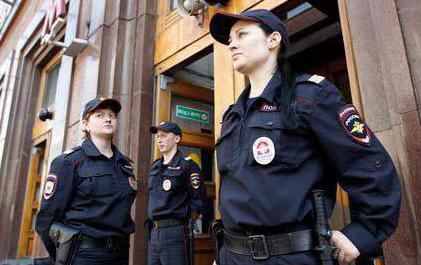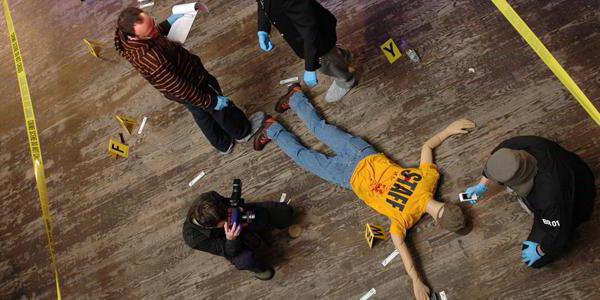Art. 38 of the CPC describes the procedural status of the investigator, one of the key figures in the criminal process. Despite the relatively small volume of the article, it is very informative and tells a lot about the powers of the investigator.
Who is an investigator
First of all, this is an official. Investigators work in the system of police, the Investigative Committee, the FSB. In each of the structures, units of investigators are organized, which are headed by chiefs who provide leadership to the department and perform control tasks. They are also directly involved in investigative work.

Regardless of the place of work, all investigators possess, according to Art. 38 Code of Criminal Procedure, single status.
Unlike interrogators, they have more freedom of action, they need less permissions to carry out certain actions.
Legislative regulation
The activities of the investigator are regulated by the norms of the Code of Criminal Procedure, departmental orders and instructions. In particular, the instructions of the Prosecutor General’s Office are often applied, which clarify the application of the norms of the Code of Criminal Procedure. Their presence is to some extent determined by the needs of the practice, however, the extent to which they are justified and their abuse is constantly criticized.

Actively apply crime investigation techniques. This is a kind of manual or template for how to act.
Part 4 p. 38 of the Code of Criminal Procedure of the Russian Federation, the law does not provide for, in the article there are only 3 parts, they contain the main powers of the investigator, the application of which is then detailed in the provisions on pre-trial investigation.
What the investigator does
The Criminal Procedure Code divides the criminal process into several stages, one of them is the stage of preliminary investigation. At this stage, the circumstances of the crime are clarified and evidence is collected.

Code of Criminal Procedure and Art. 38 in particular provide a wide range of powers that an investigator can use.
Which of them to apply is determined by the specifics of the crime being investigated. Therefore, the investigative units are organized based on the specialization of employees.
Competence of investigators
In Art. 38 of the Code of Criminal Procedure refers to the competence of investigators. What does it mean? Procedural law determines which crimes are investigated by which authority. For example, theft, fraudulent acts are the responsibility of the police. Murders and crimes against children are investigated by the UK. The FSB investigation deals with cases against state security, for example, espionage, high treason, etc. The law clearly distributes cases between departments. Arising disputes over jurisdiction are decided by the prosecutor's office.

If a case is instituted under a “foreign” article, materials with a resolution are sent through the head of the investigation to the competent authority. Often the case is not initiated at all, but a report is sent with the available materials. The law does not prohibit this, and much less time is spent. Although thereby ignored the provisions of Art. 21-38 Code of Criminal Procedure.
Start of proceedings
Criminal proceedings begin with a decision to institute criminal proceedings. Document according to Art. 38 of the Code of Criminal Procedure is issued by the investigator. The decision is made in relation to a specific person in case of suspicion in relation to a specific person. If they are not, a decision is made upon the commission of the act.

As a rule, a preliminary investigation is preliminarily carried out, and there is already evidence of a crime. The investigator’s task is to develop and legally formalize the operating units operational practices.Often, verification of citizens ’statements is carried out directly by investigators, and criminal cases are instituted in accordance with the provisions of Part 2 of Art. 38 Code of Criminal Procedure.
Version selection
Art. 38 of the Code of Criminal Procedure of the Russian Federation gives the investigator the right to choose the direction of the investigation. What does it mean? Not in every case everything is as obvious as we would like. And the task of the investigator is to choose the version of the crime, having decided who and how committed it.

If the matter is complex and resonant, an investigation team is created, and several investigative versions can be checked simultaneously. Based on the vision of what happened, the investigator chooses: whom to interrogate, what requests to contact, and which examinations to appoint.
Investigator Independence
According to the Code of Criminal Procedure, the investigator decides what investigative actions to take. But in a number of situations he needs the assistance of the court. For example, a search of a citizen’s home. It cannot be carried out without a judicial act, except in urgent cases.

Art. 38 of the Code of Criminal Procedure of the Russian Federation requires the investigator to first contact the head of the investigative department.
Then the documents go to the prosecutor's office, which submits a submission to the court. Without her consent and participation, an appeal to the court for decisions restricting the constitutional rights of citizens is virtually impossible, although formally the investigator, with the consent of the head, has the right to independently apply to the court.
Some actions require only the consent of either the department head or the prosecutor.
Conducting investigative actions, where required, without the consent of the head of the investigation department, prosecutor or court leads to the fact that the resulting evidence is recognized as obtained illegally.
Interaction with online services
Operational units exist in the FSB, the Ministry of Internal Affairs and other departments, but the investigation usually works with operatives from these two departments.
Their activity is connected with the conduct of public and secret measures to solve crimes: undercover work, surveillance, etc. In fact, they collect information about impending or committed crimes and other information that the investigator can use directly or indirectly.
The vowel of their activity is to assist the investigator: conducting surveys of citizens, carrying out assignments (conducting investigative actions without the participation of the investigator).
Some actions are carried out jointly, for example, searches, inspection of places of incidents. Detention is already the work of investigators, and investigators are trying not to intervene in it.
The law sparingly talks about the interaction of the investigator and the operational units. Much is determined by the specifics of the case and departmental affiliation.
Some cases are completely based on the materials of the ARD, in others the main work is carried out by the investigator, and the investigators play a supporting role.
Registration of actions of the investigator
Whatever actions the investigator takes, they are all recorded on paper or video. Usually, a decision is made to carry out an action, and the process of its implementation is recorded in the protocol.
The law contains prescriptions regarding their content. For example, the place and date of the interrogation, the questions that were asked during the interrogation, and the answers received by the investigator.
The law separately identifies a protocol on the clarification of the rights of persons involved in investigative actions, of suspects or accused.
Termination of proceedings
If there are legal grounds, the investigator has the right to terminate the criminal case. His decision is approved by the prosecutor. What reasons should be:
- lack of fact of action;
- the innocence of the suspect or accused;
- other circumstances precluding prosecution (age, low significance of damage, etc.).
In fact, the case ceases completely, or another person is brought to justice.
Appealing against decisions of higher persons
The investigator has the right to appeal a number of decisions of the prosecutor and the head of the investigation department:
- cancellation of the decision to initiate proceedings;
- change in the volume of charges, qualifications;
- directing a new indictment;
- impose an obligation to eliminate other violations, in the opinion of the prosecutor.
In the case of the prosecutor, the request, with the consent of the head of the investigative department, is sent to the higher prosecutor.
If similar claims were made by the head of the investigation department? A petition with a complaint about them is transmitted to the higher head of the investigation (for example, a petition to the head of the district investigation department is submitted to the head of the regional investigative department).
And so on the instances. The superior persons in the described chains are the Prosecutor General, the Chairman of the Investigative Committee, the Head of the Main Investigation Department in the Ministry of Internal Affairs and the FSB, respectively.
There is no judicial procedure for appealing by an investigator of decisions of a prosecutor or higher authorities, as indicated in Art. 38 Code of Criminal Procedure with comments.